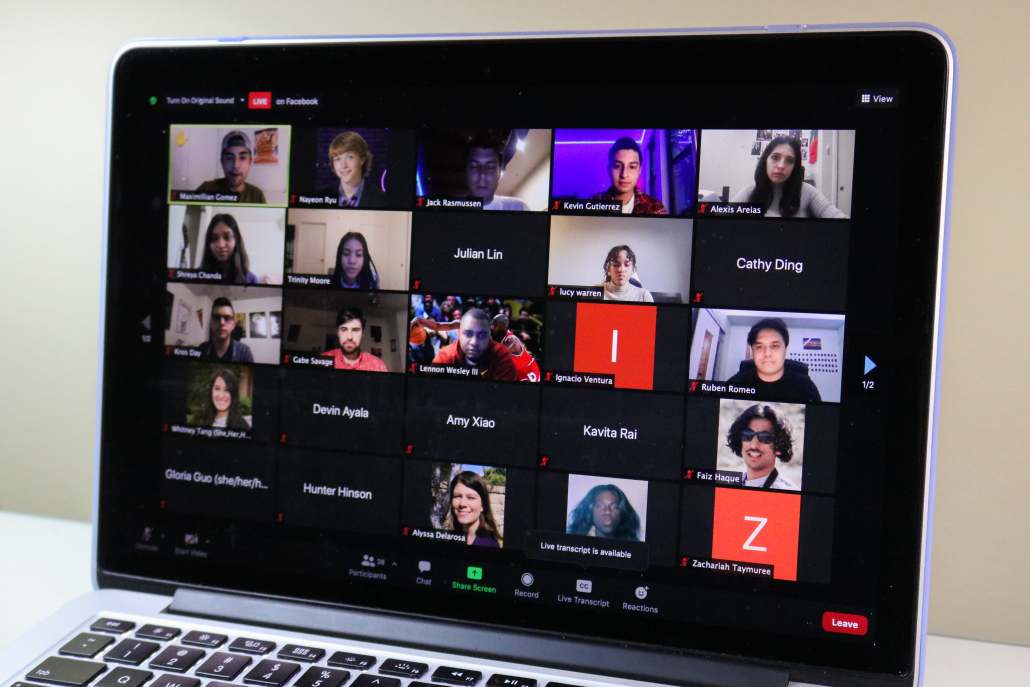USG Senate introduces final series of resolutions

The 140th Undergraduate Student Government Senate introduced their final series of resolutions at the meeting Tuesday.
The resolutions will be voted on next week, in addition to the inauguration of the incoming members of the Areias-Warren administration. President Gabriel Savage thanked everyone for their commitment and ability to face challenges in the Annual Presidential Report given at the end of each administration.
“We got a whole lot of work done this year but the work of a good student government is never finished,” Savage said. “We learned about ourselves a lot as an organization: the good, the bad and the ugly, but we still have a lot more to learn. It was a hard year for all of us, and I don’t see any point in denying that. We are emerging from that year with not only hope, but as tonight’s agenda would tell you a concrete plan on how to proceed.”
He praised the accomplishments made by USG over the academic year, including a successful negotiation of a pass / no pass option for students and being able to persuade the University to divest from the fossil fuel industry. Savage also praised the members of USG for being able to work during times of adversity.
“What’s really worth celebrating is that all of you here today, chose to prioritize service in a time of fear and uncertainty, chose to work and to fight for your fellow Trojans when you definitely had enough on your plate as it was,” he said. “You chose to serve not when it was convenient or when it was easy, but when the student body really needed it.”
After Savageʻs speech, the Transfer Student Assembly was approved to become an official assembly within the programming department. No senator raised any concern to debate on the subject.
Sen. Jack Rasmussen introduced a piece of legislation he co-authored in support of new accommodations in campus dining halls, in response to the effects of the coronavirus pandemic. Created as a way to implement safety measures among students, faculty and staff as they plan to reconvene at the University dining halls, Rasmussen said that necessary accommodations, such as establishing a “Grab N’ Go” system and predesignated takeout options, were needed in order to ensure a smooth transition for those present on campus.
Sen. Cathy Ding also introduced a resolution to address mental health issues among USC students. The resolution would implement a product known as Kognito, which functions as an interactive online role-play simulation that informs users on the information regarding mental health and suicide prevention for students, staff, faculty and academic advisors.
Sen. Shreya Chanda also introduced a resolution at the end of the meeting, in support of acknowledging climate change and holding the University more accountable to addressing the issue.
A series of Constitution and Bylaw Amendments were also passed. A number of these amendments were passed due to a restructuring proposal that would provide more jurisdiction to the Diversity, Equity and Inclusion Council, streamline legislative processes to legislative committees, introduce new representative councils and make the funding department more efficient.
One such amendment is Bylaw Amendment 2, which establishes an Advocacy Department within the legislative branch. The purpose behind the department would be to discuss campus climate issues that affect communities.
At the end of the meeting, the senators reviewed the individuals nominated to certain appointed positions on the executive branch. Alexis Arieas and Lucy Warren announced Kros Day, a junior majoring in communication, for Chief Communications Officer, Adenike Makinde, a junior majoring in real estate development, for Chief Financial Officer, Jessica Kim, a junior majoring in environmental engineering, for Chief Programming Officer, Kavita Rai, a sophomore majoring in public policy, for Chief Diversity Officer and Max Gomez, a junior majoring in communication, for Chief of Staff.
The nomination of Gomez, a current senator, was met with concern from Alyssa Delarosa, a junior majoring in psychology, who claimed that Gomez used his power and influence to cause students to vote for Areias and Warren during the 2020-21 election in violation of Elections Code IV.E.1, which directly states that support for candidates “must be individual and must not be affiliated with [a member’s] position in USG.”
“After he committed a blatant violation of honesty and integrity and abuse of his power and influence, as you all are aware, USG has lost the trust of the student body,” she said during the three minute discussion session. “Now, USG, through this confirmation, seems even more determined to sever the trust between students by committing this highly unethical confirmation.”
Arieas and Gomez, who were both present at the meeting, responded to Delarosa’s concern by recognizing and thanking her for sharing her comments. According to Areias, the decision to select Gomez for Chief of Staff came after a rigorous interview process.
“The Elections Commission has reached their decision, and we have reflected their decision and acknowledged it,” Gomez said. “Outside of that, I just want to say, I don’t have any goals here in this organization besides serving students supporting this organization and using my skills as a student and leader to empower those on campus.”
Despite their responses, Delarosa expressed her displeasure at their answers. In an interview with the Daily Trojan, she still expressed her claim that Gomez had committed a violation.
“I merely expressed my concerns, and the concerns of the student body who’s aware of the situation and what’s going on,” Delarosa said. “I found [it] really odd that he was just really defensive and saying how he didn’t have this agenda [of affecting the election].”
The executive board nominations, as well as the academic yearʻs last Senate resolutions, will be decided on at next weekʻs meeting.

